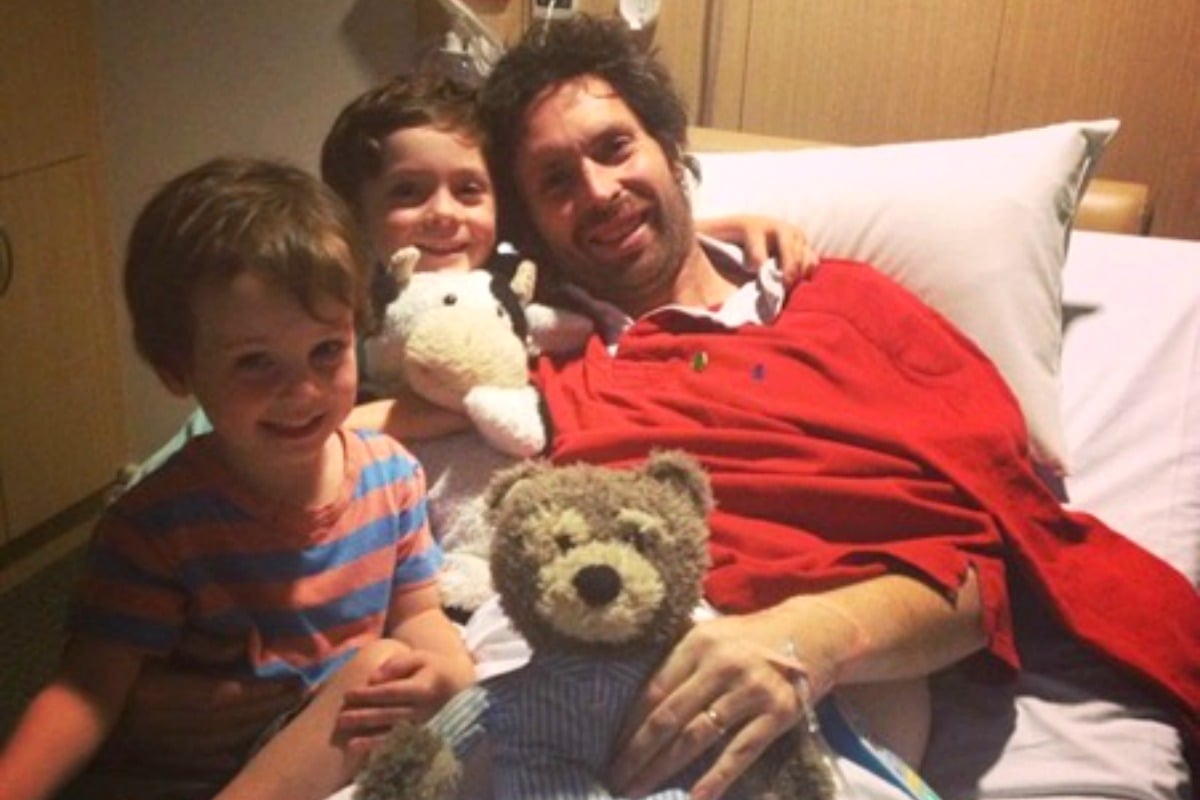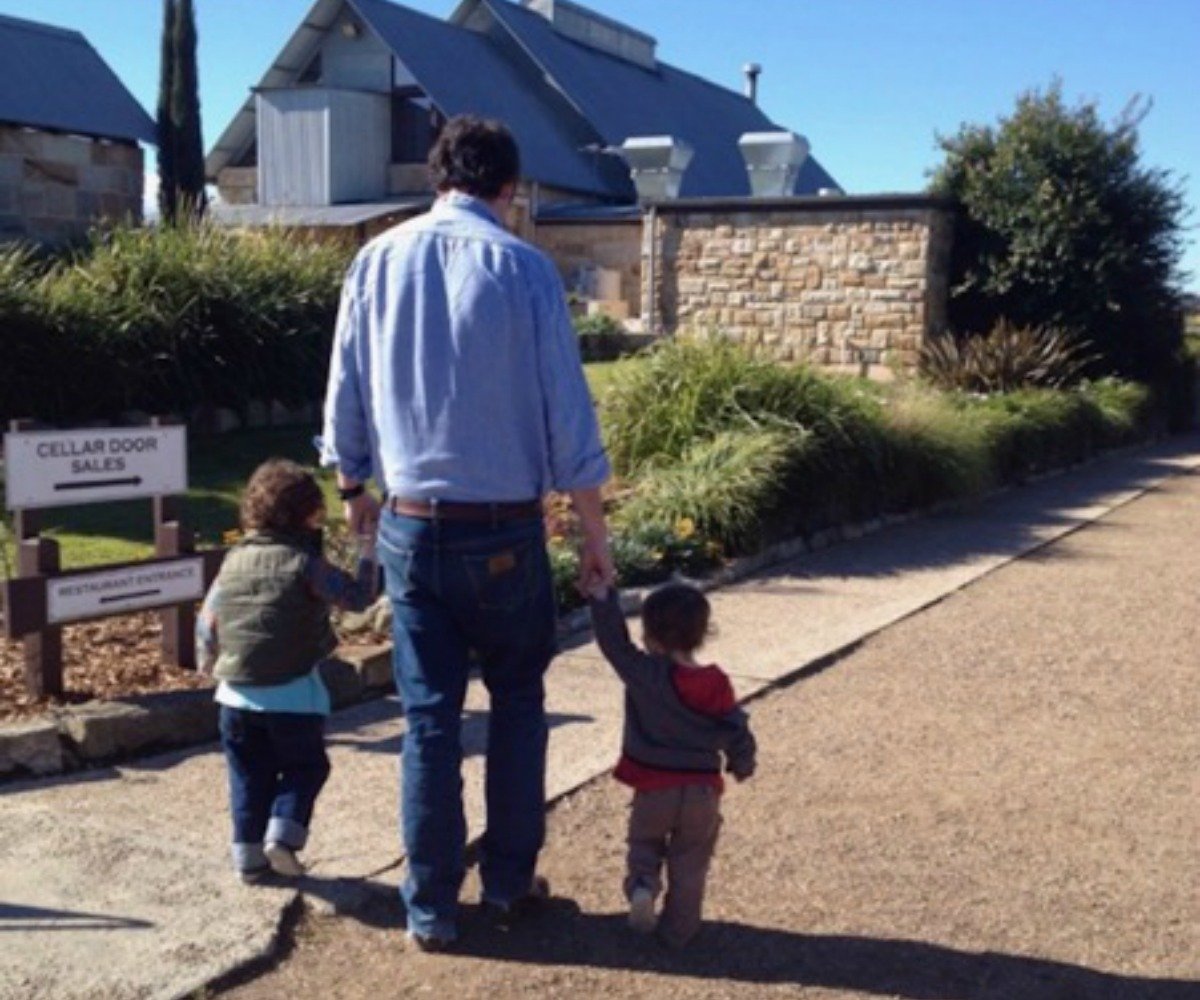
When my husband was diagnosed with stage 4 colon cancer in 2013, we had to make a decision about how we were going to manage the disease for him, but also for our two little boys who were just four and six years old at the time.
For us, we needed to find a balance between honesty with the boys and ensuring that they didn’t become scared and anxious.
We sought advice and guidance from counsellors, and we chose to explain that their dad was unwell.
Watch: Talk to your family about their health history. Post continues below.
I believe it is so important to speak to children honestly about the end of life and provide them, in a kind and respectful way, with the tools to understand the process.
We explained cancer to them using the right words, and then when they asked more questions we explained in simpler terms that it was like a computer game where there were cells floating around in Daddy and that the doctors and Daddy were trying to kill the cells with different medicine.
This simple explanation allowed the boys to understand as best they could what was happening. Importantly, they knew that we were being honest with them – even at their young ages, they both wanted answers.



Top Comments
What a brave and sensible idea to approach death with your children this way . I firmly believe ( having lost my father in my childhood ) that it would have helped them immensely to face his death in this way